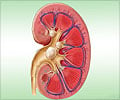Data on experience-related outcomes in children's surgery are limited and vary widely in methodologic quality, suggests a review of the available medical literature.

Hospital and surgeon characteristics are often examined in terms of outcomes. Studies in adults have been numerous but the quality and quantity of similar data in children are less consistent, according to the study background.
Jarod P. McAteer, M.D., of Seattle Children's Hospital, Washington, and colleagues reviewed 63 studies evaluating 25 procedures to review the association between surgeon or hospital experience and outcomes in children's surgery.
"The most important point manifested by the results of these studies is that hospital-level characteristics are often strongly associated with improved outcomes in less common, more complex problems (e.g., CDH [congenital diaphragmatic hernia] and congenital heart surgery), whereas surgeon-level factors appear to be more important in more common, less resource-demanding procedures (e.g., appendectomy, pyloromyotomy, ureteral reimplantation, and cleft lip repair) as well as in procedures commonly encountered in adult surgery (thyroidectomy, inguinal herniorrhaphy and cholecystectomy). These results highlight the importance of surgeon- vs. system-level factors, depending on the condition of interest," the authors conclude.
Source-Eurekalert
 MEDINDIA
MEDINDIA




 Email
Email




